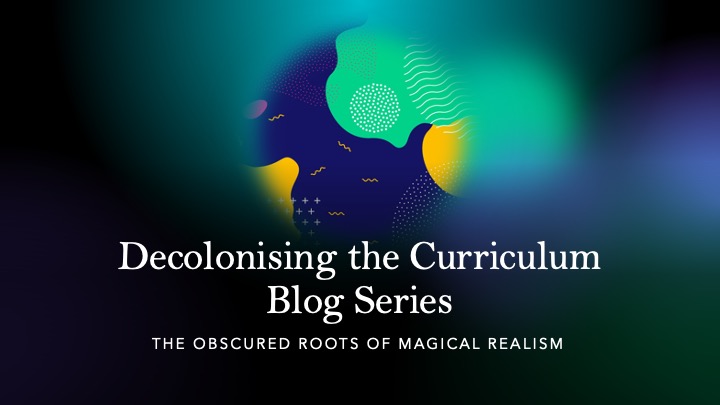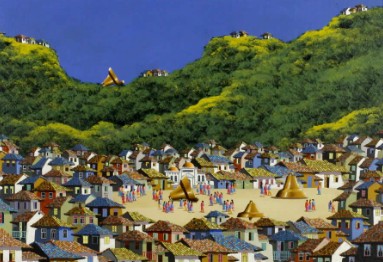
By Mitzi Castle
Magical realism is a ‘narrative strategy that is characterized by the matter-of-fact inclusion of fantastic or mythical elements into seemingly realistic fiction’ (Augustyn, Encyclopaedia Britannica, 2021). Magical Realism is a genre of literature that originates in Latin America in the 1940s. However, it is a genre cloaked in folklore and oral storytelling, which has undoubtedly existed in numerous cultures throughout history, including those that were not literate. Therefore, records of their stories are mostly absent. Various scholars have traced the emergence of magical realism as a natural result of post-colonial writing. Kudzayi Munyaradzi Ngara argues that this is because ‘magic realism is a space where both novelist and critic are invited to explore paradigms of the imagination that are at variance with the long-held orthodoxy of social realist engagement’ (Ngara, ‘Imagining the Real,’ 2007). Consequently, by its very definition it is a genre that challenges western values of logic and modernity, through its subversion of reality.

Gonzalo Endara Crow's untitled, magical realist painting, known as Lloviendo Campanas (Raining Bells). Image credit: Wiki Commons.
In her thesis, Ngara references Freud’s view of (western) society: ‘civilisation is […] built entirely on the renunciation of instinct’ (Psychoanalysis, 1986). Freud indicates, through his Eurocentric view of society, how those residing in the Occident reject how one should naturally live, and therefore western society’s ‘reality’ is in fact a mirage – an illusion or creation of reality rather than actuality. Magical realism’s refusal to decipher ‘fact’ from ‘fiction’ embraces a more complex understanding of existence. Unlike fantastical genres, which focus on portraying clearly unrealistic elements, and aim to fully submerge readers in an imagined world, magical realism forces the reader the question reality of the current climate in which the story is set. This often leads to a politicised narrative that evaluates the authenticity of western storytelling and confronts assumptions about literature in economically emerging countries. Instead of forcing other cultures to assimilate into prescribed ideals of literature, magical realism allows authors to develop the foundations of their cultural oral storytelling in a form that has become widely read and accepted. It also urges Occident authors to engage with these aspects of heritage in their societies and discard traditional genres that have been viewed as canonical in academic circles, which gives merit to logic and reasoning.
Consequently, it may be contended that the roots of magical realism are not post-colonial, but rather pre-colonial. It is a genre which prevailed in ancient societies before discoveries and periods such as the so-called Enlightenment era. Yet, it is only a post-colonial society, that has facilitated western cultures to gain access to this genre in the form of texts, and the changing worldview has enabled them to be seen as valuable.
Bibliography
Augustyn, Adam. (2021). "Magic Realism". Encyclopedia Britannica. Available at: <https://www.britannica.com/art/magic-realism>. [Accessed 22 May 2022].
Freud, Sigmund. (1986). Historical and Expository Works on Psychoanalysis. Harmondsworth: Pelican.
Ngara, Kudzayi Munyaradzi. (2007). Imagining the real – magical realism as a post-colonial strategy for narration of the self in Zakes Mda’s Ways of dying and the Madonna of Excelsior. Unpublished MA Thesis. University of the Western Cape.